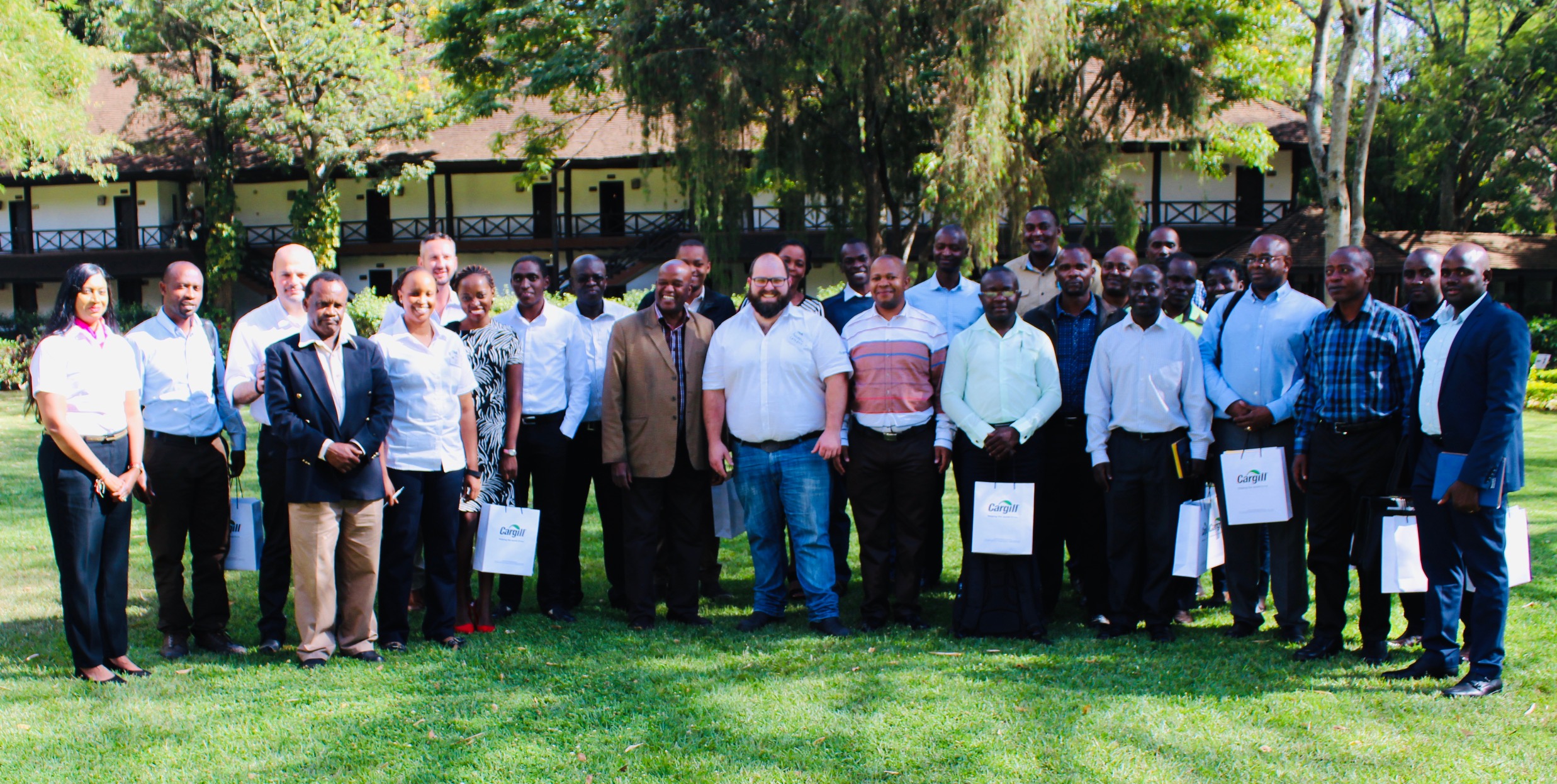Cargill, an international company that deals with animal nutrition last week trained 50 farmers on animal nutrition, health and management to enhance their feed mills and farms.
According to the Association of Kenya Feed Manufacturers, the cost of imported grain used to make feeds has increased from Sh1400 to Sh2,100 hence increasing the cost animal feeds.
A research conducted by the International Livestock Research Institute in 2017 revealed that 25 per cent of animals feeds at the farm level in Kenya exceeded the aflatoxin required limit of five parts per billion (ppb).
“The objective of the seminar was to increase awareness on practices that can improve productivity and safety, to meet the needs of feed millers and farmers through a holistic approach to animal health, nutrition and management,” said Samantha Govender, Regional Director of Cargill Premix and Nutrition, Sub Saharan Africa.
Topics of interest included ways to improve safety in a feed mill; the challenges and solutions of dealing with mycotoxins in animal feed; the importance of a healthy gut in poultry and ruminants to maximise performance; and advice on assisting customers with their health management needs.
Related content
Bidco introduces poultry feeds that reduce maturity period in kienyeji chicken, increasing yields
Manual chicken feed mixing machine cuts buying cost by 30-50 per cent
Casual worker quits job to establish thriving dairy feeds business

Some of the farmers and millers at the Cargill seminar.
“Farmers running small to medium-sized farms were particularly interested in the basemix concept, an all-in-one approach that combines world-class nutrition technology in a rip-and-tip bag, and helps to streamline mixing operations,” said Govender.
The ready to use mix contains vitamins, trace minerals, amino acids, macro minerals and Cargill’s health technologies, to ensure optimum health for livestock, and ensuring peace-of-mind and convenience for the farmer.
To make 100kg of dairy feed supplement for instance you will use 75kg of energy feeds, 23kg of protein feeds and two kilos of minerals. This may include 57kg of maize germ, 18kg of wheat pollard, 17kg of lucerne hay, six kilos of soya meal and two kilos of di-calcium phosphate and this will cost a total of Sh1900.
A 70kg bag of dairy meal is currently retailing at Sh2,300 meaning with homemade feeds farmers can save Sh400 and have a surplus of 30 kilos.
Farmers were taken through practical workshops where delegates divided into two interest groups - poultry and ruminants – and discussed common challenges faced by the farmers and solutions that considered their operational needs.
Dorcus Mkongo, who manages a broiler farm near Mombasa, said that the seminar was very informative and was well worth attending.
"I manage a farm which has about 2,000 birds. We have plans to expand to 10,000 birds when we have built additional houses. The information about farm management and nutrition is valuable and will ensure that I don't make mistakes from the past again when I lost 20 per cent of the birds due to inadequate feeding,” said Mkongo.
"It was great to have an interactive session with Cargill experts and learn from their knowledge about poultry feed and common problems and solutions. I look forward to sharing this information with other small farmers, and am keen to attend further seminars in the future to further expand my knowledge,".
Cargill’s animal nutrition business, which has been in operation in Kenya since 2015, works in close collaboration with the company’s grain and oilseeds business. This close collaboration enables knowledge and solutions to be leveraged, key inputs such as high-quality ingredients, advisory services and laboratory testing facilities to be utilized to the benefit of Kenya’s feed and animal industry.
“We look at how animal feed, additives and management techniques can be used to increase farm and animal productivity and improve an animal’s overall well-being - which is ultimately linked to sustainable feed and farming practices,” said Govender.
















Comments powered by CComment